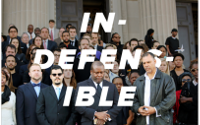Funding for public defense in New Orleans (and throughout Louisiana) is inadequate, unreliable and unpredictable. And I am not the only one who thinks so.
In a 2006 report titled "An Assessment of the Immediate and Longer-Term Needs of the New Orleans Public Defender System," the federal Bureau of Justice Assistance wrote, "It is imperative that a stable and adequate funding source be established for the [Orleans Public Defender's Office.] Without that commitment, it will remain impossible to provide defendants with the representation to which they are constitutionally entitled." In a follow-up report in 2010, the bureau wrote, "The OPD's funding must be stable, dependable and adequate. ... No one seems to know how much to expect from any source during the current year or in the future."
In 2012, an independent evaluation commissioned by the Louisiana Public Defender Board said this: "Simply put, OPD is not and has never been on a stable revenue footing. Louisiana, unique to all other states, funds its indigent defense system primarily through local traffic tickets and other local fees and costs."
Fines, fees and court costs are a part of criminal justice systems around the country, but Louisiana public defenders depend and rely on such costs to a dangerous degree. On average, two-thirds of public defender operating budgets are comprised of fines, fees and costs. Nationally, such revenues account for zero-to-10 percent of funding. While our entire criminal justice system relies heavily on fines, fees and costs, public defense is the most glaring example of how flawed this funding structure really is.
Read more in The Lens...




